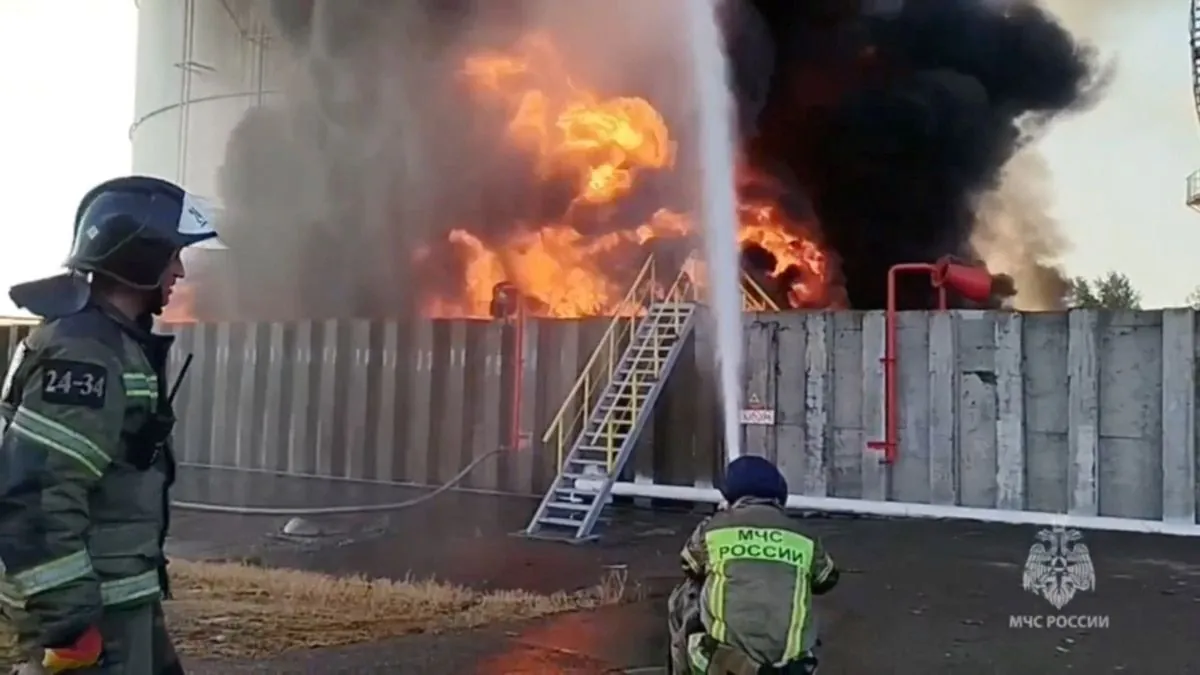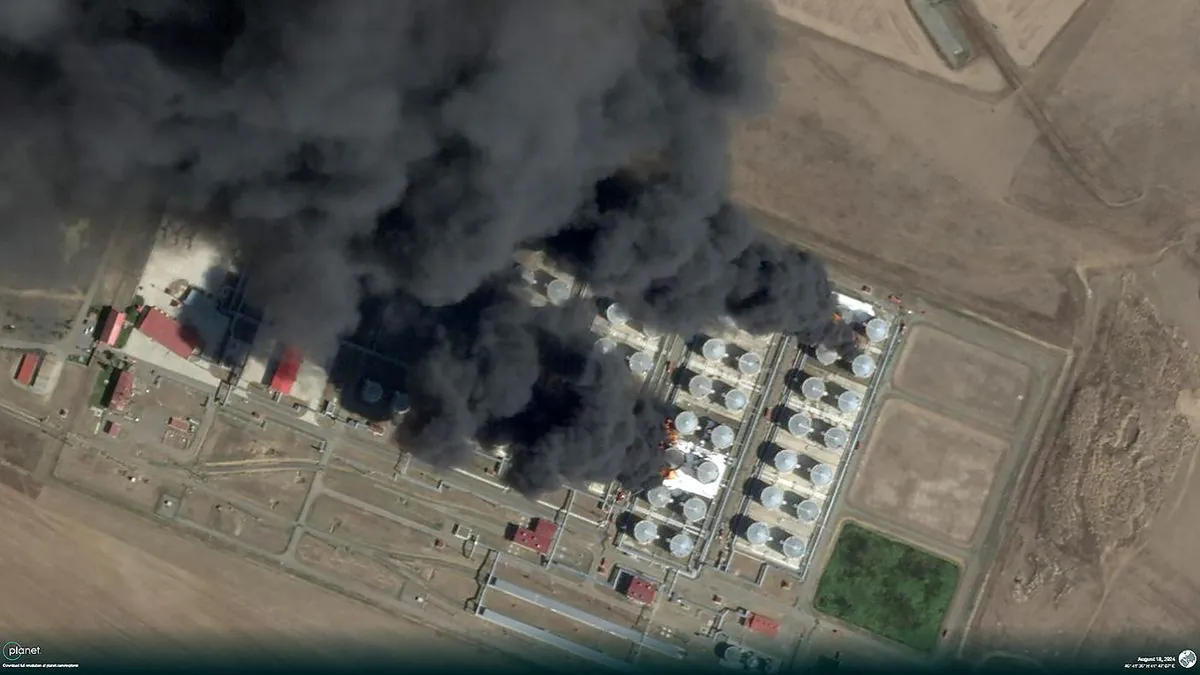Ukrainian Forces Strike Russian Oil Depot, Advance in Kursk Region
Ukrainian drones hit a Russian oil depot, causing a massive fire. Meanwhile, Ukrainian forces push into Russia's Kursk region, capturing territory and prisoners, as the conflict intensifies on multiple fronts.

In a significant development in the ongoing conflict between Russia and Ukraine, Ukrainian forces have launched a series of bold operations, striking deep into Russian territory. The attacks have exposed vulnerabilities in Russia's defenses and demonstrated Ukraine's growing military capabilities.
As of August 20, 2024, Russian authorities have been struggling for three consecutive days to extinguish a massive fire at an oil depot in the town of Proletarsk, Rostov region. The blaze, which has engulfed an area of 10,000 square meters, was ignited by Ukrainian drone strikes. According to Russian state news agencies, 500 firefighters are battling the inferno, with 41 already hospitalized due to injuries.

The Ukrainian Army General Staff has claimed responsibility for the attack, stating that the oil depot was used to supply the Russian army. This strike is part of Ukraine's strategy to undermine Russia's military and economic potential.
Simultaneously, Ukrainian forces have made significant advances into Russia's Kursk region. Volodymyr Zelenskyy, the Ukrainian President, reported that his army has captured 1,250 square kilometers and 92 settlements in the region. This incursion, launched in early August 2024, marks the largest attack on Russian soil since World War II.
Zelenskyy emphasized the strategic importance of this operation, stating:
"Overall, this (Kursk) operation became our largest investment in the process of freeing Ukrainian men and women from Russian captivity. We have already captured the largest number of Russian prisoners in one operation."
The Ukrainian leader also highlighted the creation of a buffer zone to prevent further Russian attacks across the border, particularly those involving long-range artillery, missiles, and glide bombs.
However, while Ukraine celebrates these successes, the situation in the Donbas region remains precarious. Russian forces continue their relentless advance across Ukraine's Donetsk region, following the capture of Avdiivka in February 2024. The city of Pokrovsk, a key Ukrainian stronghold and logistics hub, is now under threat.
The ongoing conflict has its roots in the complex history of the region. The Donbas, comprising the Donetsk and Luhansk regions, has been a flashpoint since 2014 when pro-Russian separatists declared independence from Ukraine. The area, known for its coal mining industry, accounts for about 16% of Ukraine's total land area.
As the war approaches its third year, both sides continue to employ increasingly sophisticated tactics and technologies. The use of drones, as evidenced by the strike on the Proletarsk oil depot, has become a hallmark of 21st-century warfare.
The international community watches closely as the conflict evolves, with the potential for further escalation and the hope for eventual peace negotiations hanging in the balance.


































